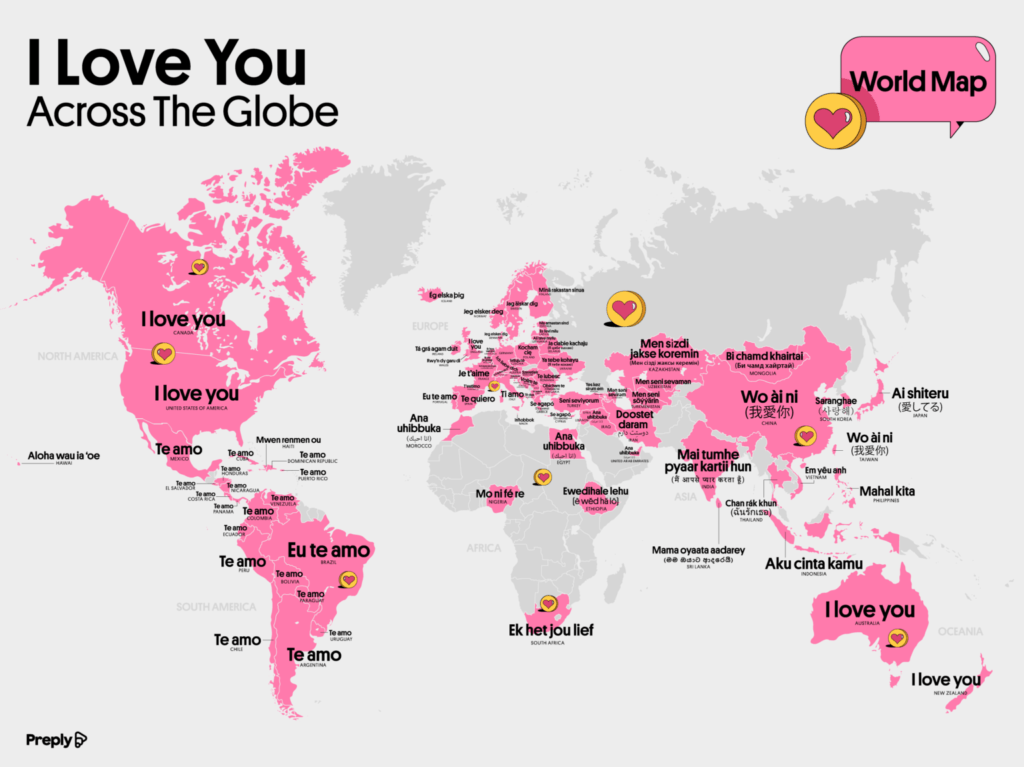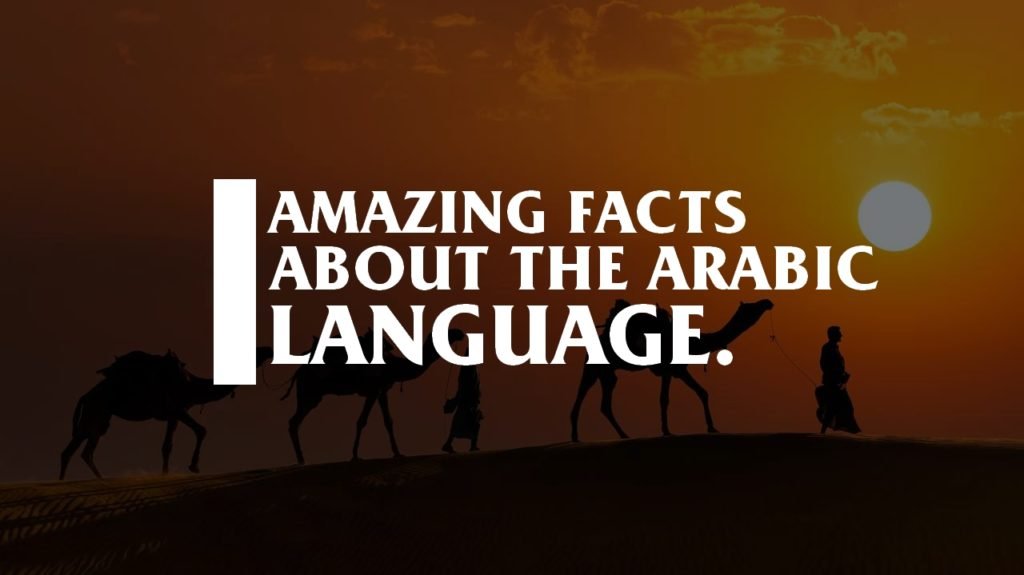“Did you know that people say “I love you!” more often than “Good morning!” in English? It’s a way to show affection to a romantic partner or someone you care about deeply, without it being about sex. Every language has its own special ways of saying “I love you,” as you can see on the map below, put together by Preply. It’s interesting to see how different languages express love. The map shows connections between words for “love” in different languages.
Africa
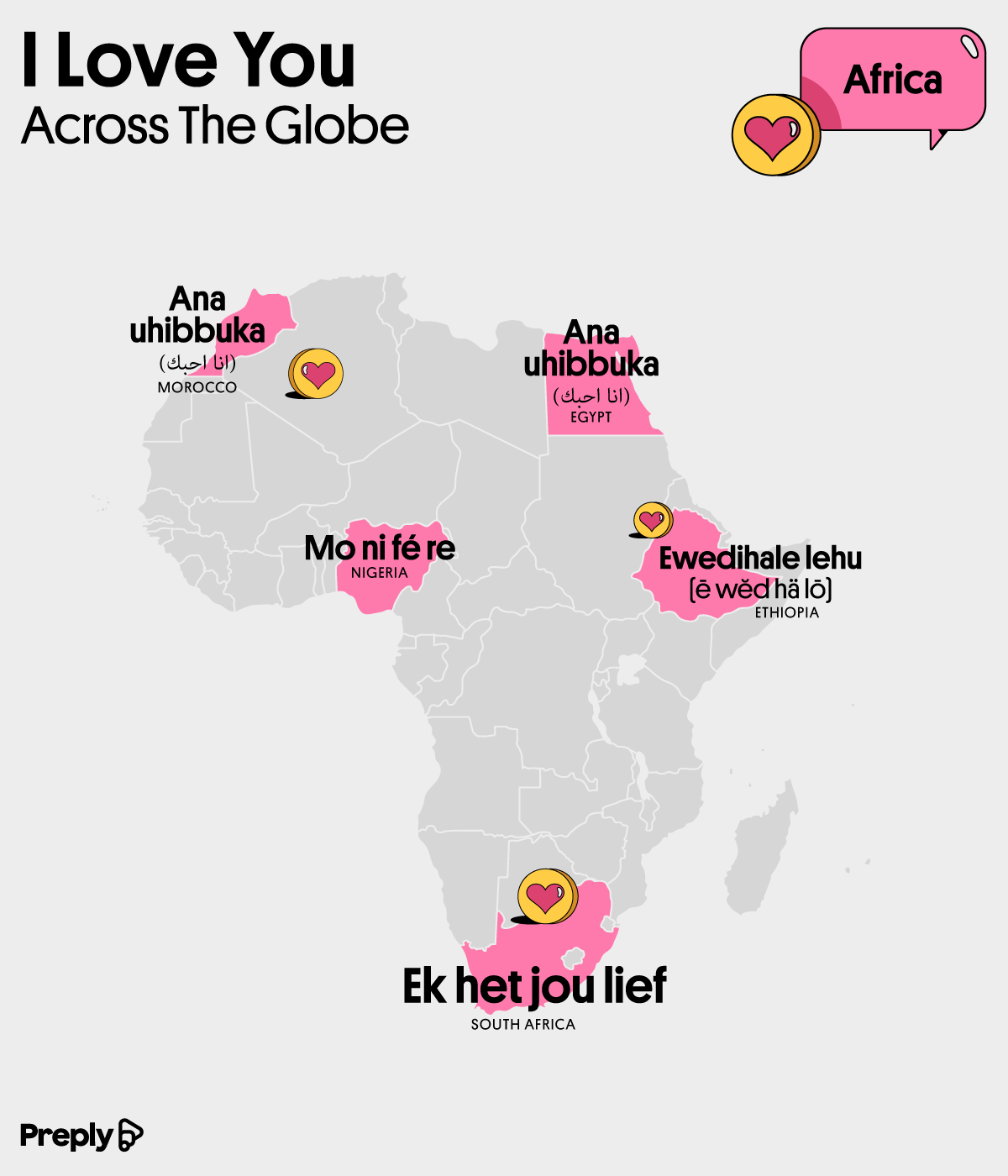
Asia
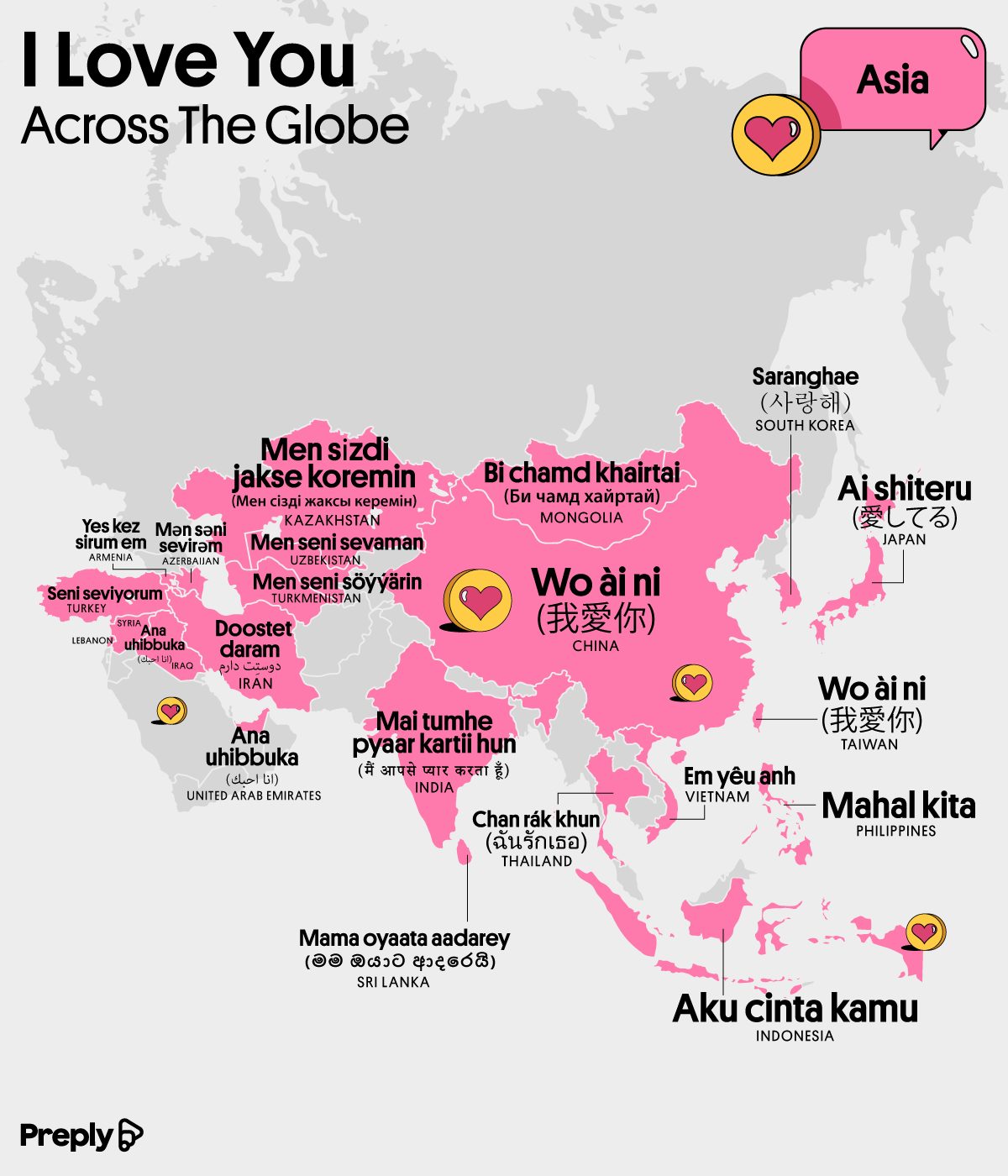
South America
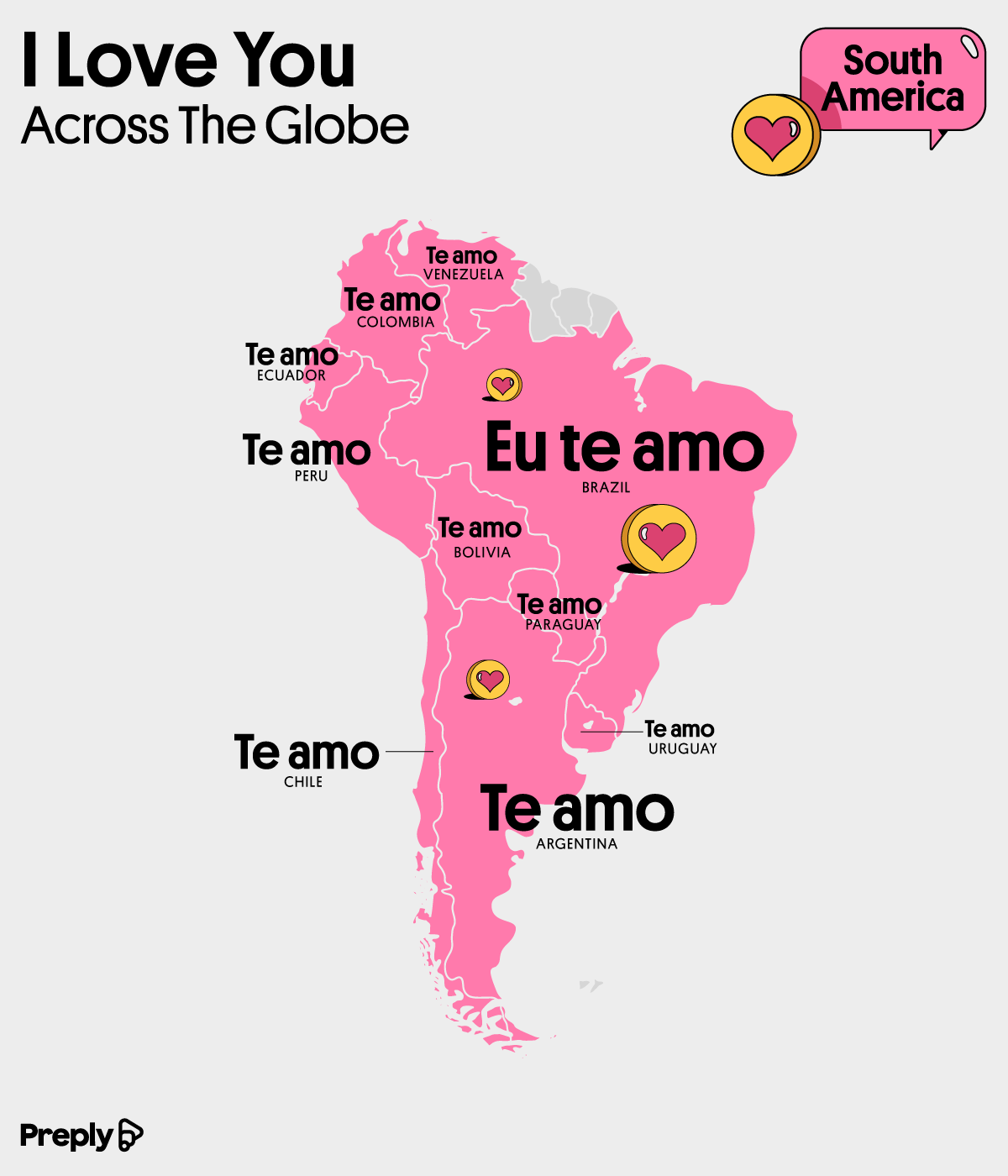
Europe
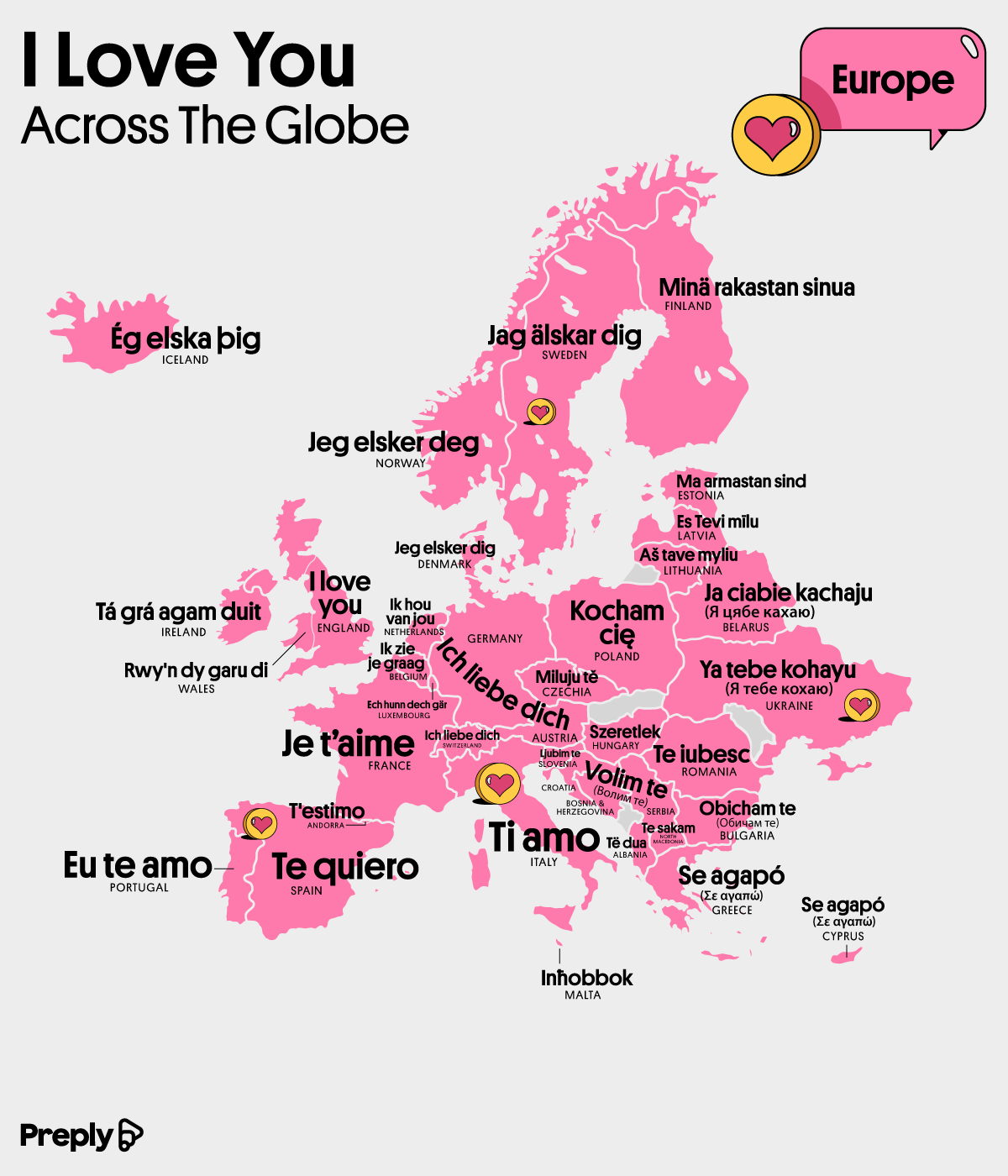
In Spanish and Italian, the word “amo” is usually used for expressing love towards a romantic partner. But when it comes to friendship or family, people use “quiero” in Spanish and “voglio” in Italian instead. In Ukrainian, “кохаю” is used for expressing love between lovers, while “люблю” is used for expressing love between any two people. However, this might vary depending on the dialect and the influence of Polish and Russian languages.
It’s interesting to note that many languages share a common origin for words related to love. For example, Russian “ljublju”, German “liebe”, English “love”, and similar expressions in other languages all come from the same ancient root called Proto-Indo-European *lewbʰ-.
Another interesting connection is between Italian “voglio” and Croatian “volim”. They both originate from Proto-Indo-European *welh₁-, which is also where the English word “will” comes from.
In Czech, “miluji”, and in Baltic languages like Lithuanian and Latvian “myliu” and “mīlu”, all likely stem from the same Proto-Balto-Slavic root *meiʔlos. Despite being geographically separated by Polish, which is closely related to both language groups, these languages share similar expressions for love. However, in modern Polish, a different expression “miłować” is more common, especially in religious and formal contexts.
North America
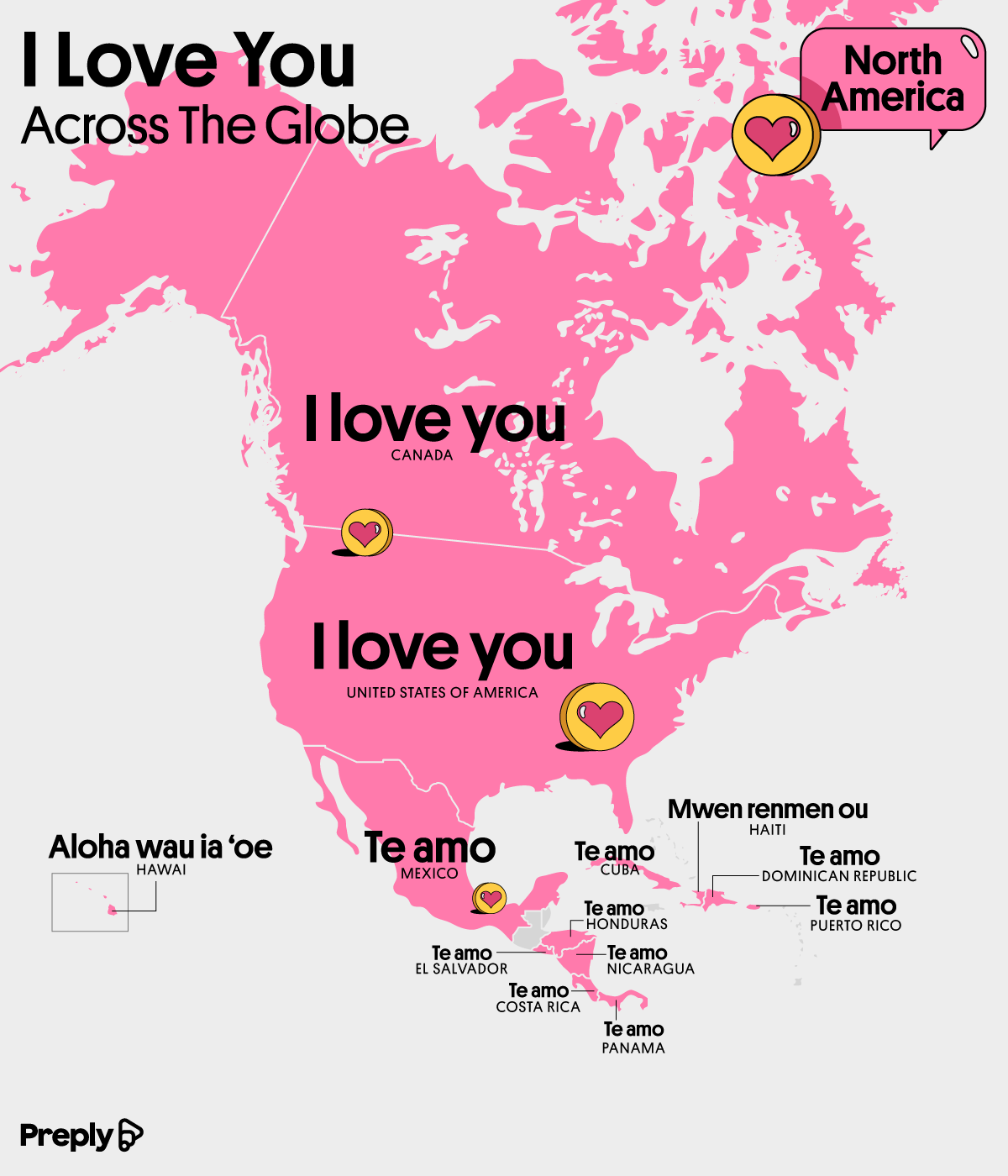
Oceania
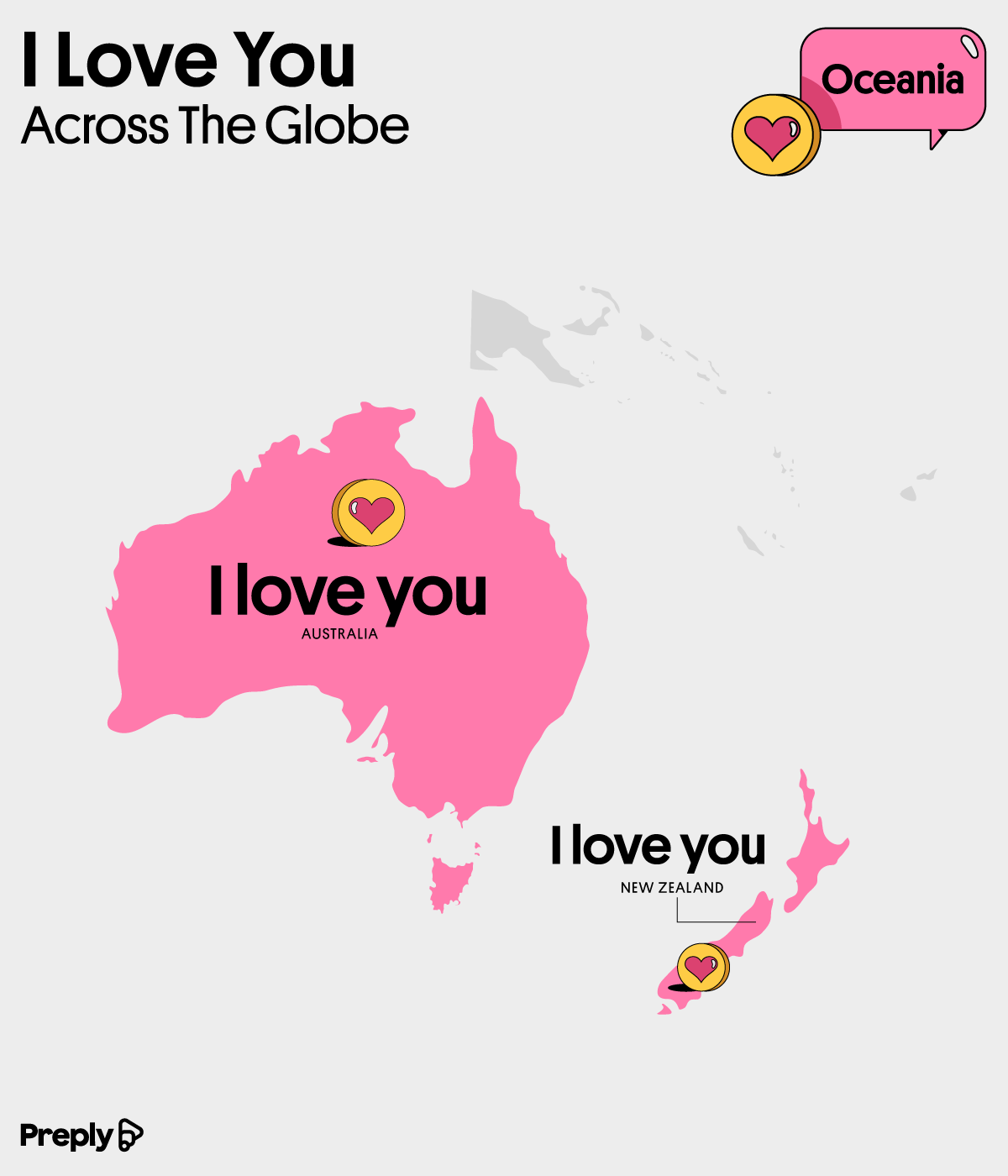
World


